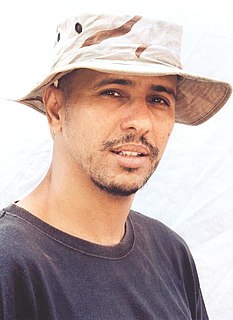A Quote by W. E. B. Du Bois
It can be safely asserted that since early Colonial times, the North has had a distinct race problem. Every one of these States had slaves, and at the beginning of Washington's Administration, there were 40,000 black slaves and 17,000 black freemen in this section.
Related Quotes
Many Southern Plantation owners were working towards the day when they could convert their investment to more profitable industrial production as had been done in the North, and others felt that freemen who were paid wages would be more efficient than slaves who had no incentive to work. For the present, however, they were stuck with the system they inherited. They felt that a complete and sudden abolition of slavery with no transition period would destroy their economy and leave many of the former slaves to starve - all of which actually happened in due course.
Harriet Washington, in 'Medical Apartheid: The Dark History of Medical Experimentation on Black Americans from Colonial Times to the Present,' documents the smallpox experiments Thomas Jefferson performed on his Monticello slaves. In fact, much of what we now think of as public health emerged from the slave system.
The commerce of a free people is many times more valuable than that of slaves. Freemen produce and consume vastly more than slaves. They have therefore more to buy and more to sell. Hence the free states have a direct pecuniary interest in the civil freedom of all the other states. Commerce between free and slave states is not reciprocal or equal.
One of the things I recognized early on, doing whatever studies of black history I have, is that even though black folks were transported as slaves, into servitude, when they were carried out of Africa they left empty-handed, but they didn't leave empty-headed. They carried with them the culture they knew, the culture they had, and that culture reconstituted itself in all the places they went.
The Fourteenth Amendment, after the civil war, in principle brought former slaves into the category of persons, theoretically. But if you actually look, almost all the cases brought up for personal rights under the Fourteenth Amendment were by corporations. Freed slaves couldn't do it. In fact they were pretty much driven back into something like slavery by a north - south compact, that allowed former slave states to criminalize black life, which made a criminal force that was basically used as a forced labor force, up until the 1930s.
I first visited the Toronto fest in 1979, its fourth edition, when it was known as the Festival of Festivals and had an audience of about 40,000. I happily returned to the 10-day skein nearly every year thereafter, as attendance swelled to 400,000 and it grew into the most influential film festival in North America, perhaps the world.
It's always intrigued me that amidst the group called slaves there were individuals who were extremely able, who were extremely colorful, who were powerful personalities, who by no means fit the usual images of slaves. They were people who, through their personalities and abilities, were very respected in the community where they lived by both black and white.
My first car was, as depicted in 'Sleepwalk with Me,' my mother's '92 Volvo station wagon that had 80,000 miles on it, and I had put 40,000 miles on it, so by the time it retired it had 120,000, and I basically killed it. It served me well, and my mechanic was always very angry with me because I just didn't properly care for it.
Adults who loved and knew me, on many occasions sat me down and told me that I was black. As you could imagine, this had a profound impact on me and soon became my truth. Every friend I had was black; my girlfriends were black. I was seen as black, treated as black, and endured constant overt racism as a young black teenager.






































